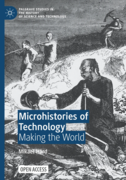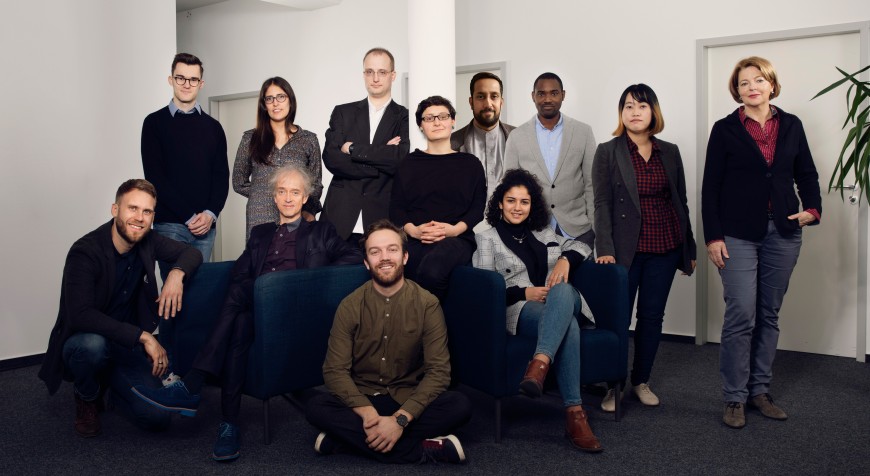Recent Publications
- Hård, Mikael, Microhistories of Technology Making the World, Palgrave Studies in the History of Science and Technology. Palgrave Macmillan, Cham. Open Access

- van der Straeten, Jonas. Sustainability’s “Other”: Coming to Terms with the Electric Rickshaw in Bangladesh. Historical Social Research 47 (4), 2022: 139-167. doi: 10.12759/hsr.47.2022.42 or download as pdf (wird in neuem Tab geöffnet)
- Drengk, David, “Instandhaltung und Reparatur als Rückgrat kolonialer Eisenbahnen. Zentrale und mobile Werkstätten und Krankenstationen im ivorischen Wald„ [“Maintenance and Repair as the Backbone of Colonial Railways. Centralized and Mobile Workshops and Infirmaries in the Ivorian Forest“], Technikgeschichte 89:2 (2022): pp. 149-180. Open Access
- Osoria Tarazona, Alejandra, „Why Chuño Matters: Rethinking the History of Technology in Latin America“ Technology and Culture 63, no. 3 (2022): 808-829. Link to Journal
- Mchome, Emanuel Lukio (2022): ‘Blackout Blues’: A Socio-cultural History of Vulnerable Electricity Networks and Resilient Usersen Wald„ in Dar es Salaam, 1920–2020. Darmstadt, Technische Universität Darmstadt [Dissertation]. Link to Dissertation
- Edward, Frank, “Planned Vulnerabilities? Street Flooding and Drainage Infrastructure in Colonial Dar es Salaam", HoST: Journal of History of Science and Technology 16 (1), 2022: 29-47. Link to Journal
Project Leader: Professor Mikael Hård
Institution: Institute of History, Technische Universität Darmstadt, Germany
Financial Support: European Research Council (Project No. 742631)
Timeframe: October 2017 – September 2022
Today, people in practically every corner of the world use mobile phones. In many places, though, the same population that uses this so-called modern form of communication also prepares their meals with a “primitive” technology: the charcoal cook stove. Indeed, confronted by economic and political crises, the inhabitants of some countries have returned to using techniques many consider out-of-date. In some cases, horses have replaced tractors to plow fields. Such observations challenge established views of globalization and technological change. Empirical evidence contradicts the notion that globalization holds irresistible power, and that technological change is a linear and evolutionary process. The world is certainly not the same everywhere!
Our goal is to increase our understanding of the relationships between the development and use of technologies in Europe and North America on the one hand and the so-called Global South on the other. Some of the topics and areas of particular interest include:
The local translation of internationally available plans, designs, and practices: During and immediately after the colonial period, residents of Asian, African, and Latin American countries variously attempted to implement, transform, or resist “Western” technologies—for example, in the areas of service provision and urban planning.
Technological encounters and the emergence of hybrid artifacts: In addition to considering the area of cooking equipment, the GLOBAL-HOT team examines cases in the arena of mobility. For example, the Global South is rich in examples of local craftsmen, artists, and users modifying and tinkering with imported bicycles, motorbikes, and cars to prolong their lives and to expand their usability.
The continued application of locally embedded practices and know-how: If we want to write a history from below, as it were, studies of the “autoconstruction” of makeshift houses in so-called slum areas lay close at hand. Agricultural techniques are another area in which local traditions and know-how have stayed alive and have been developed further.
The maintenance, operation, and repair of buildings and infrastructures: In contrast to most studies on the history of large technological systems, GLOBAL-HOT investigates what happened after buildings and systems were established. In other words, the team’s focus is on the continuous attempts to keep established systems running.
Announcements
In 2022 and 2023, the following PhD candidates successfully finished and defended their doctoral theses (viva voce):
Youngju Lee, “Feminine Technologies, Women Users, and Female Bodies in South Korea, 1950 – 2000“
Alejandra Osorio Tarazona, “The Hybrid Kitchen: Material Culture, Technical Knowledge, and Cooking Practices in Argentina and Peru, 1940 – 1980“
David Drengk, “People, Materiality, and Nature in Everyday Life: The Technological Landscape of the Rainforest in Côte d’Ivoire, 1890-1930“
Frank Edward, “Circulation and Appropriation of Urban Technologies: Drainage and Traffic Infrastructures in Dar es Salaam, 1913 – 1999“
Emanuel Lukio Mchome, “’Blackout Blues’: A Socio-Cultural History of Vulnerable Electricity Networks and Resilient Users in Dar es Salaam, 1920 – 2020“
Markus Schertler, “Kritische Infrastrukturen in Deutsch-Ostafrika 1884-1918“


